#charles iii
Text
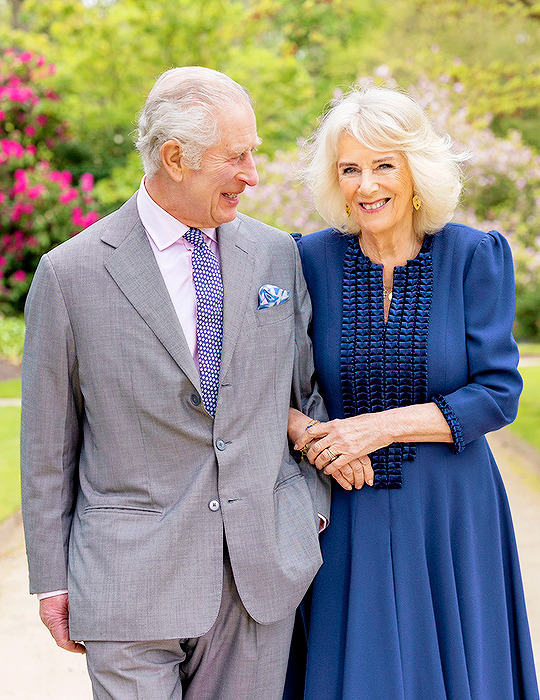
British Royal Family - The King and Queen in a new photo released by Buckingham Palace ahead of the first anniversary of their coronation. (Photo by Millie Pilkington) | April 26, 2024
#royaltyedit#theroyalsandi#charles iii#king charles iii#queen camilla#king charles ii of the united kingdom#queen camilla of the united kingdom#king of the united kingdom#queen of the united kingdom#british royal family#my edit
75 notes
·
View notes
Text

source 1
source 2
#destiel meme news#destiel meme#news#world news#king charles iii#british royal family#british royalty#king charles lll#charles iii#monarchy#tw cancer#cancer#uk politics
17K notes
·
View notes
Text

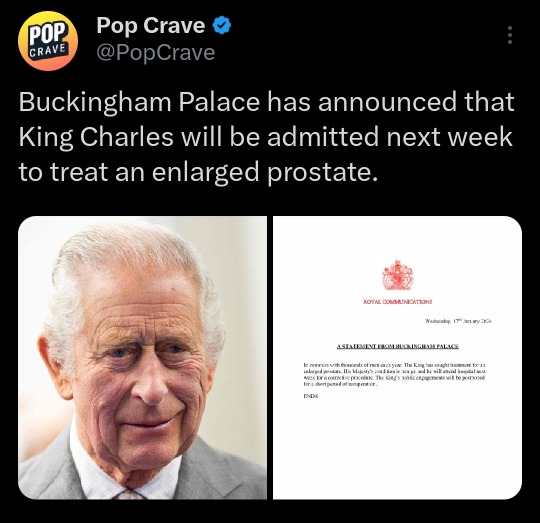

It's happening
9K notes
·
View notes
Text
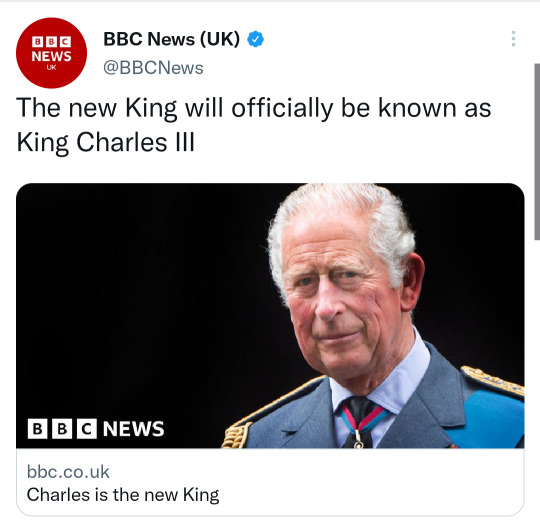
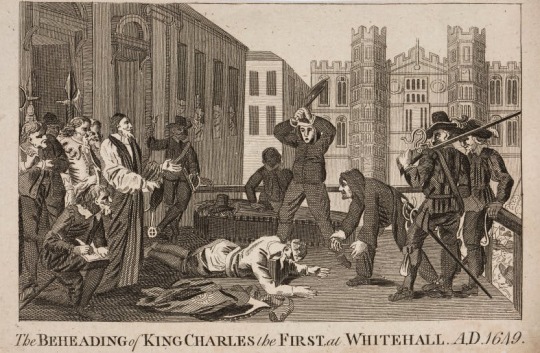
like to charge reblog to cast
122K notes
·
View notes
Text
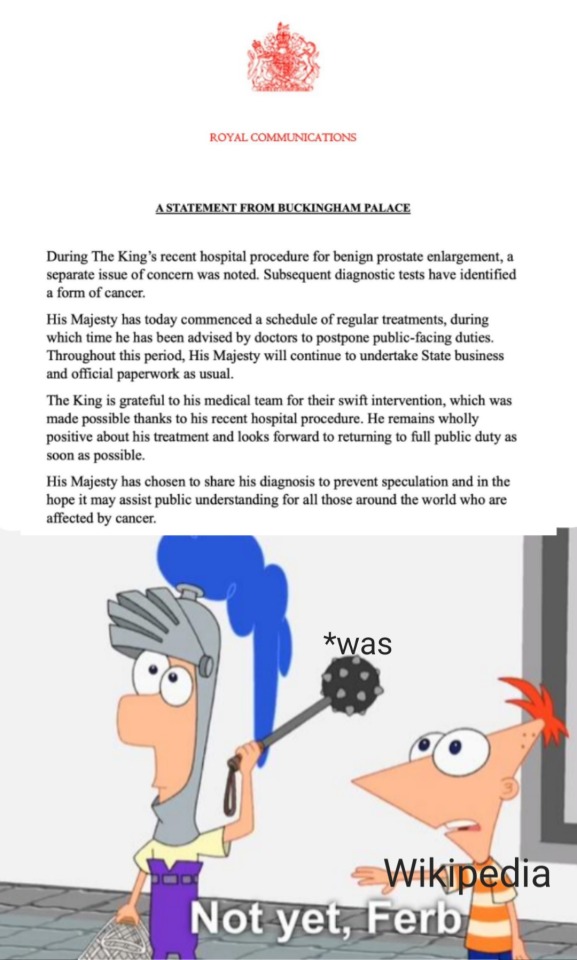
4K notes
·
View notes
Text
who needs a functional economy when you could pay for a billionaire pensioner's hat party instead
#uk politics#uk#coronation#charles 3#charles iii#abolish the monarchy#british royals#british royal family#royal family#imperialism#hat party
12K notes
·
View notes
Text
hey so remember those new protest laws that make peaceful protest illegal? yeah? wanna see them in action?
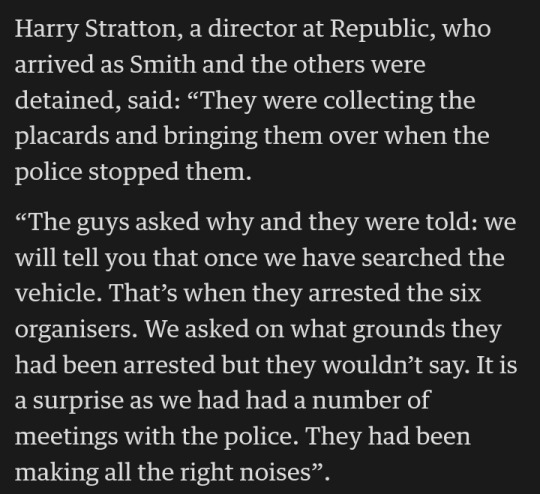


[alt text:]
Head of UK’s leading anti-monarchy group arrested at coronation protest
Republic’s Graham Smith held at protest on King Charles III’s procession route in central London
Daniel Boffey Chief reporter, Sat 6 May 2023 08.31 BST
The head of the UK’s leading republican movement has been arrested at an anti-monarchist protest on King Charles III’s procession route.
Graham Smith had been collecting drinks and placards for demonstrators at Trafalgar Square when he was detained by police on the Strand in central London.
It is understood Smith was detained after bringing a megaphone to the demonstration. The Met police had tweeted earlier this week that they would have a “low tolerance” of those seeking to “undermine” the day.
Harry Stratton, a director at Republic, who arrived as Smith and the others were detained, said: “They were collecting the placards and bringing them over when the police stopped them.
“The guys asked why and they were told: we will tell you that once we have searched the vehicle. That’s when they arrested the six organisers. We asked on what grounds they had been arrested but they wouldn’t say. It is a surprise as we had had a number of meetings with the police. They had been making all the right noises”.
full article
dont you love it when your government decides to not even bother hiding the fact the fascist tendencies theyre leaning more and more into?
#uk police#uk politics#britpol#british politics#british police#monarchy#anti monarchy#the guardian#harry stratton#graham smith#daniel boffey#charles#charles iii#coronation#hell country#police misconduct
9K notes
·
View notes
Text
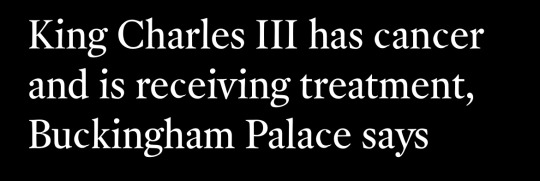
Imagine waiting that long to become King and then almost immediately getting cancer
#Charles III#british monarchy#british royal family#king charles#anti monarchy#thats for Diana you son of a bitch
1K notes
·
View notes
Text
Heartwarming! A senior citizen (Charles) took over the family business (the British monarchy) after his mother passed away, so his family and friends (rich white people) threw him a party (an unnecessarily expensive coronation) to support him.
#uk politics#uk#United Kingdom#coronation#King Charles iii#King Charles#Charles iii#King Charles coronation#British royal family#royals
6K notes
·
View notes
Text


Good morning, everyone!
#king charles iii#king charles#charles iii#charles the third#british royal family#nimona#ballister boldheart#ambrosius goldenloin#ballister x ambrosius#goldenheart#original post#nd stevenson#nimona movie#ambrosius x ballister#history#netflix#riz ahmed#eugene lee yang#england#uk politics#current events
1K notes
·
View notes
Text


443 notes
·
View notes
Text
The crowd: May The King Live Forever!
My brother, nine year old anti-monarchist: well that’s not going to happen
2K notes
·
View notes
Text
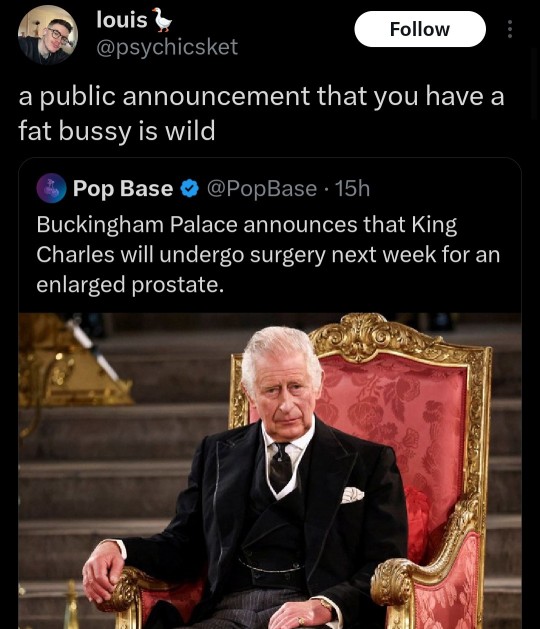
451 notes
·
View notes
Text
Short live the King
6K notes
·
View notes
Text
You know what I hope the BBC are right. I hope this is a once in a lifetime event. I hope we abolish the monarchy before Charlie boy dies.
#uk politics#coranation#abolish the monarchy#we hate them#they hate each other#It's wins all round#charles iii#monarchy#1k
2K notes
·
View notes
Text
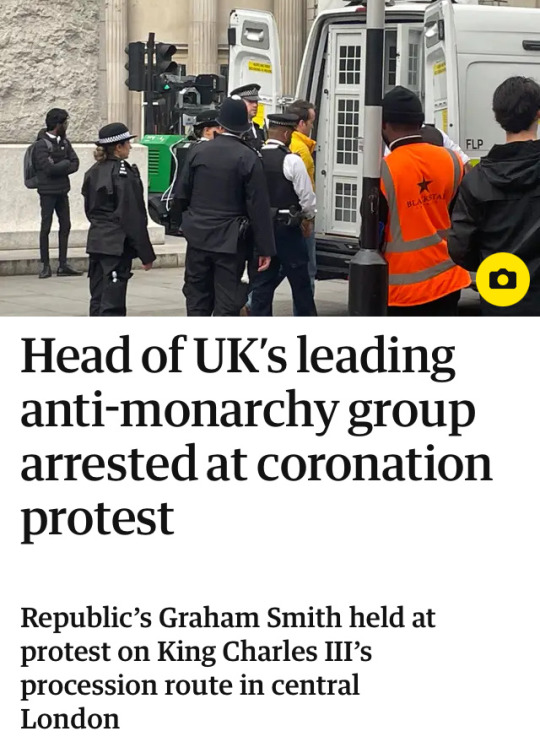
nice, normal things to happen in a healthy, functioning democracy :-) (x)
1K notes
·
View notes